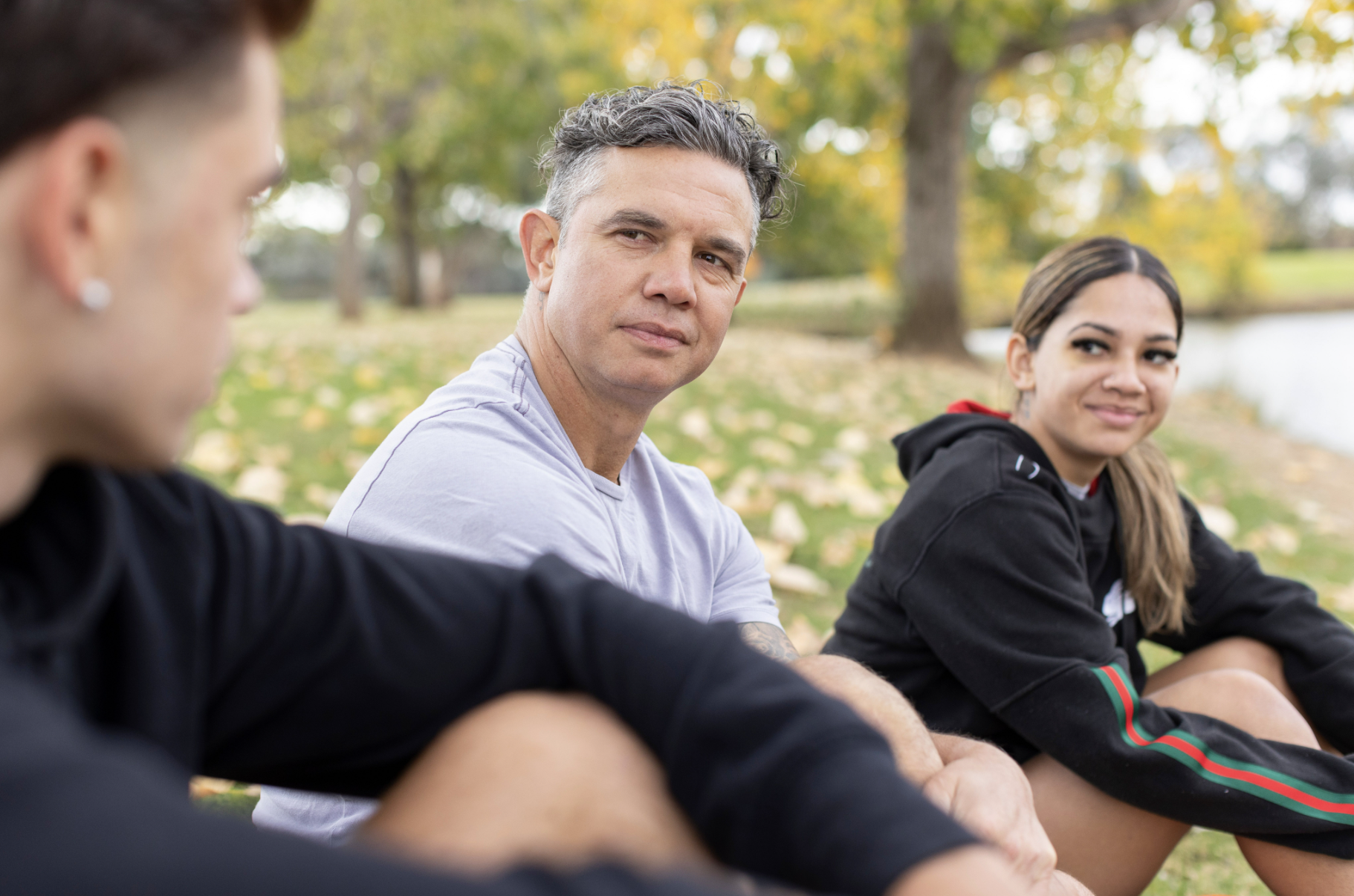Joe Williams hasn't shied away from self-reflection and accountability on his journey as a dad.
He saw "two very different people" when looking back on the father he was to his eldest two early on, and the father to his youngest three more recently, Williams says in a new, emotional Australian documentary.
He's become a much more present dad. It was a stark realisation - one which came during the pandemic while spending a lot more time at home with the younger ones.
SEEN features vulnerable, personal accounts of raising kids and the steps they took to make change from four parents.
"It's starting a conversation", Williams told National Indigenous Times, with "immense impact across the country".
"The reason I decided to take part in the film was I understood that my actions and behaviours caused a hell of a lot of damage," he said.
Williams knows, for anyone, being "the perfect parent" can be an impossible task, and responsibility.
"It's about being conscious of what we do and the actions we have and how they impact our little people. That's why I took part in this film, because I wanted to have some accountability for what I've done."
"There's a difference between a father and a dad," Williams states at one point during SEEN, later adding "It's a process of continually turning up".
"A dad is someone who is emotionally available, who is emotionally ready to be able to share and hold space in different times that are challenging", he told National Indigenous Times.
Two mums and two dads lay bare their parental influences, how that shaped them and the processes to making a difference for their kids - often breaking a cycle, in SEEN.
Experts and academics provide their scope.
Born in Cowra and raised in Wagga, Williams carved out a career in the NRL before turning his attention to boxing in the 2000s.
After a suicide attempt in 2012, he turned his attention to mental health and suicide prevention in schools, community corrections, sports clubs and workplaces.
Williams had a beautiful childhood, one where he felt safe, loved and given the foundations of a healthy upbringing, he told National Indigenous Times.

As a young footballer himself, and first-time dad at 21, the lifestyle and pressures of elite professional sport brought their own challenges.
His eldest children document their profound new relationship with Williams, and share earnest recollections of where they felt they sat in their father's life in contrast to the bond they now share.
"I have to put my hand up," Williams admits in the documentary.
"It haunts me… there are many years I can't get back."
His eldest son has moved back in with his dad.
The filming process was almost a "jigsaw piece" with "real vulnerability".
He's made "conscious and fundamental changes", some needing ongoing awareness to continue, to be the dad he's become, he said.
"I did the interview without anyone thinking that they (my older two kids) were going to be involved in it. I did the interview three to four months prior to the idea of them being involved.
"I said that's not a question for me. It's a question for them. I'll back them whatever they want to do... if they want to, if they want to have their peace, then then I'll support that."
There was another crucial element for the Wiradjuri and Wolgalu man.
"Culture has been the most healing thing for me…rebuilding the circle and having strong people circle me…when I needed it most," Williams said.
Now wants the documentary to provide something important, in a current setting, he says, where "our children are the most challenged that they have ever been" and Australia has some way to go to better address social and mental wellbeing.
For viewers, "I hope they take hope out of it", he told National Indigenous Times.
"Because there is a way."
"I cry every single time I see it because it's one thing that to be a conscious of your own behaviours and how they impact people, but to see it how it impacts your own kids emotionally on screen in front of you, it's huge...and it's something that's needed - to have these conversations.
"It's super easy to project and say, 'This is what the issues are. This is why the issues are', but it's super hard to reflect and look inwards and say, 'how can I fix these situations? What can I do better in these situations?'"
He later added "I know this is the answer to start to heal our communities. The way that we do that is through rebuilding, healing our family units".
SEEN has begun touring with screenings across the country and internationally.
Selected screening including QandA sessions started March 25.
Individuals and organisations are encouraged to host their screenings via Kinema.

